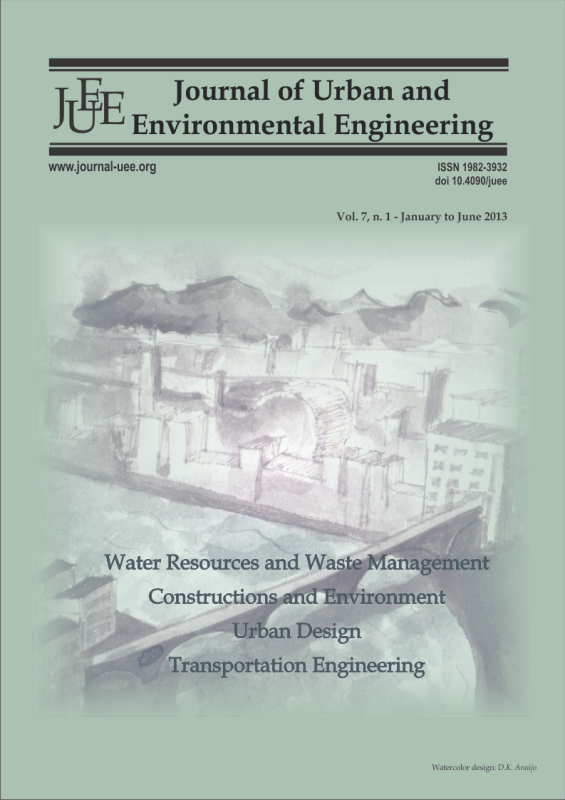URBAN GROWTH AND WATER QUALITY IN THIMPHU, BHUTAN
DOI:
https://doi.org/10.4090/juee.2013.v7n1.82-95Keywords:
Thimphu, Land use/land cover change, water quality, physico-chemical, benthic macro-invertebrates,Abstract
Detailed study was undertaken in 2008 and 2009 on assessment of water quality of River Wang Chhu which flows through Thimphu urban area, the capital city of Bhutan. The water samples were examined at upstream of urban area, within the urban area and its downstream. The water samples were analyzed by studying the physico-chemical, biological and benthic macro-invertebrates. The water quality data obtained during present study are discussed in relation to land use/land cover changes(LULC) and various ongoing human activities at upstream, within the each activity areas and it’s downstream. Analyses of satellite imagery of 1990 and 2008 using GIS revealed that over a period of eighteen years the forest, scrub and agricultural areas have decreased whereas urban area and road network have increased considerably. The forest cover, agriculture area and scrub decreased from 43.3% to 42.57%, 6.88% to 5.33% and 42.55% to 29.42%, respectively. The LULC changes effect water quality in many ways. The water temperature, pH, conductivity, total dissolved solids, turbidity, nitrate, phosphate, chloride, total coliform, and biological oxygen demand were lower at upstream and higher in urban area. On the other hand dissolved oxygen was found higher at upstream and lower in urban area. The pollution sensitive benthic macro-invertebrates population were dominant at upstream sampling sites whereas pollution tolerant benthic macro-invertebrates were found abundant in urban area and its immediate downstream. The rapid development of urban infrastructure in Thimphu city may be posing serious threats to water regime in terms of its quality. Though the deterioration of water quality is restricted to a few localized areas, the trend is serious and needs proper attention of policy planners and decision makers. Proper treatment of effluents from urban areas is urgently needed to reduce water pollution in such affected areas to check further deterioration of water quality. This present study which is based on upstream, within urban area and downstream of Thimphu city can be considered as an eye opener.Downloads
Download data is not yet available.
Downloads
Published
2013-08-16
Issue
Section
Articles




